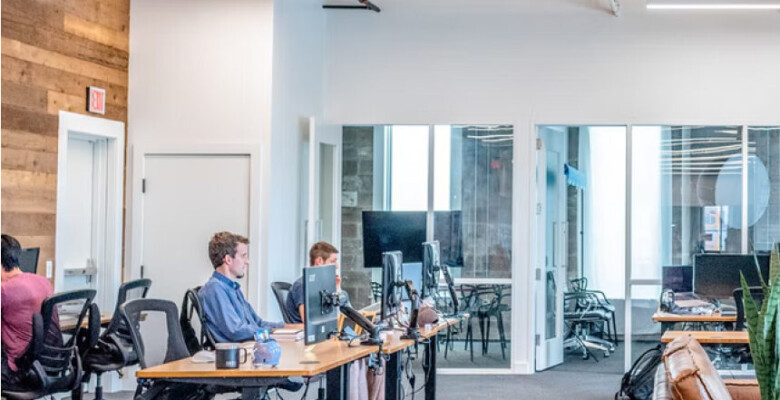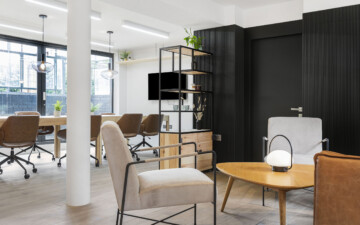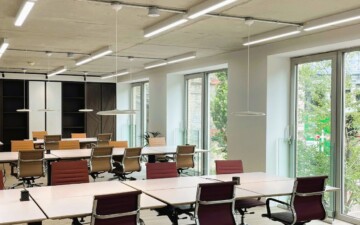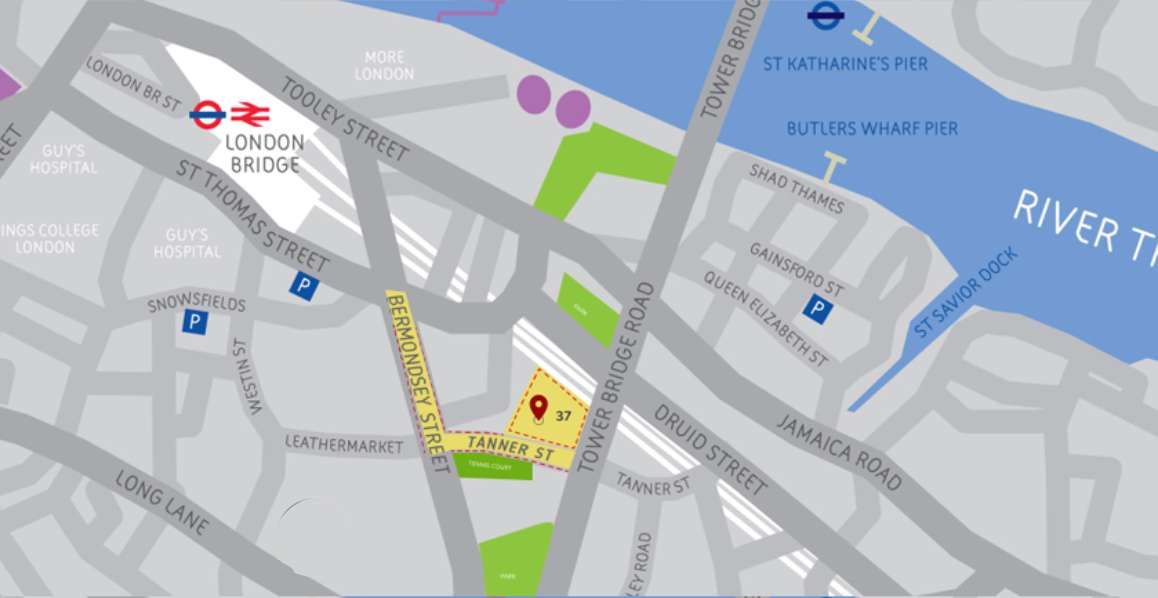Are you an entrepreneur gearing up to launch your startup in London? Then you’re in for a thrilling yet challenging journey ahead! In preparation for the challenges ahead, securing an appropriate workplace is critical. Do you know? Nearly 29% of startups fail because they run out of funding, making it the second most common reason for startup closures. This emphasises the importance of strategic resource allocation for early-stage companies.
From hiring decisions to product development, startups must carefully maximise their limited capital. This includes selecting an appropriate workspace that fits their budget while offering flexibility to accommodate their evolving needs.
This is where flexible workspaces come in. These spaces allow startups to secure office space with little upfront investment, typically providing divisible floor plans, customisable lease terms with various mutually agreed break clauses, and extensive amenities to meet a company’s evolving needs.
This blog post will explain in depth ‘what a flexible workspace is’ and how it can benefit your startup.
What are Flexible Workspaces?
Flexible workspaces are adaptive work environments that cater to various business needs and styles. Unlike traditional offices, they offer a range of space options and lease terms, allowing businesses to scale up or down based on their changing requirements. This flexibility is crucial for startups that experience fluctuating growth and have diverse needs at different stages of their development.
Moreover, flexible workspaces offer startups the essential resources required to hit the ground running from day one. This includes high-speed internet, IT support, printing and scanning services, and secure parking areas. Flexible office spaces also foster a collaborative atmosphere, enabling startups to interact and network within a community-driven space.
What are the Benefits of Flexible Workspaces?
Coworking spaces have grown in popularity, especially among startups and new business owners, because of their flexibility and accessibility. In fact, according to a Team Stage report, 37.93% of SMEs and 27.12% of startups use coworking spaces.
Here are a few prominent benefits of opting for a flexible workspace.
- Cost Efficiency: Startups often operate with tight budgets. Renting a traditional office space can be very expensive, especially for new startups. They may or may not be able to afford the office space rent, electricity bills, extravagant amenities, furnishings, pantry supplies, maintenance, etc. Fortunately, flexible coworking spaces in London provide startups with a cost-effective solution, saving them a sizable sum of money. These spaces offer fully furnished offices and amenities, eliminating the hassle and complexity of building an office from scratch. With coworking space, you only pay for the space you need and can upgrade or downsize as your business grows or adapts to changing needs.
- Networking Opportunities: Flexible workspaces allow professionals to collaborate and work alongside one another, which can be especially helpful for startup teams. Being surrounded by a diverse pool of creative and motivated professionals can spark new ideas and help startups thrive. Additionally, such interactions can lead to partnerships, mentorship, and even new client acquisitions.
- Flexibility in Lease Terms: Startups often struggle to commit to an office space due to fluctuating financial situations and space requirements. A typical office lease of 5-7 years that necessitates significant upfront costs can be burdensome for startups. Startups benefit from shorter lease terms because they require less space and can more quickly establish themselves in the market. Flexible, short-term office space options are now abundant, providing customisable layouts and flexible terms. Flexible leasing ranges from monthly memberships to multi-year contracts, giving startup founders the freedom to expand their businesses at their own pace.
- Scalability: As startups grow, their office space needs can change rapidly. Flexible workspaces cater to this by allowing easy scaling, whether it means adding more desks or securing a larger office area. For example, if you start with a team of 5 people but eventually expand to a team of 20, flexible office spaces enable you to transition to a larger office easily.
- Access to Essential Amenities: Small businesses and start-ups across the UK are beginning to prefer amenity-rich spaces that are conveniently located, aesthetically appealing, and offer services that fulfill business needs, going beyond the usual. The Instant Group’s UK Flex Market report indicates that non-traditional, amenity-rich workspaces have a significantly higher average occupancy rate (82%) than traditional spaces. These spaces include private meeting and conference rooms that support virtual webinars, secure infrastructure, parking facilities, and recreational spaces to relax and unwind.
- Enhanced Productivity: Modern and ergonomic designs within flexible workspaces contribute to enhanced productivity. Studies show that implementing ergonomic solutions, such as comfortable chairs, can lead to a 25% increase in productivity, making these workspaces conducive to efficient and creative work.
- Professional Image: No matter where your startup started, whether it be from a bedroom or a garage, projecting a professional image for your business is crucial. A professional workspace in London provides you with a credible address that can enhance your startup’s reputation in the eyes of clients and investors.
- Support Services: Administrative and IT support availability in these workspaces allows startups to focus more on their core business activities, without being sidetracked by operational issues.
What are Different Types of Flexible Workspace?
Flexible workspaces provide diverse solutions suitable for businesses of varying sizes and types. Your choice of workspace can depend on your team size, office usage frequency, and budget constraints.
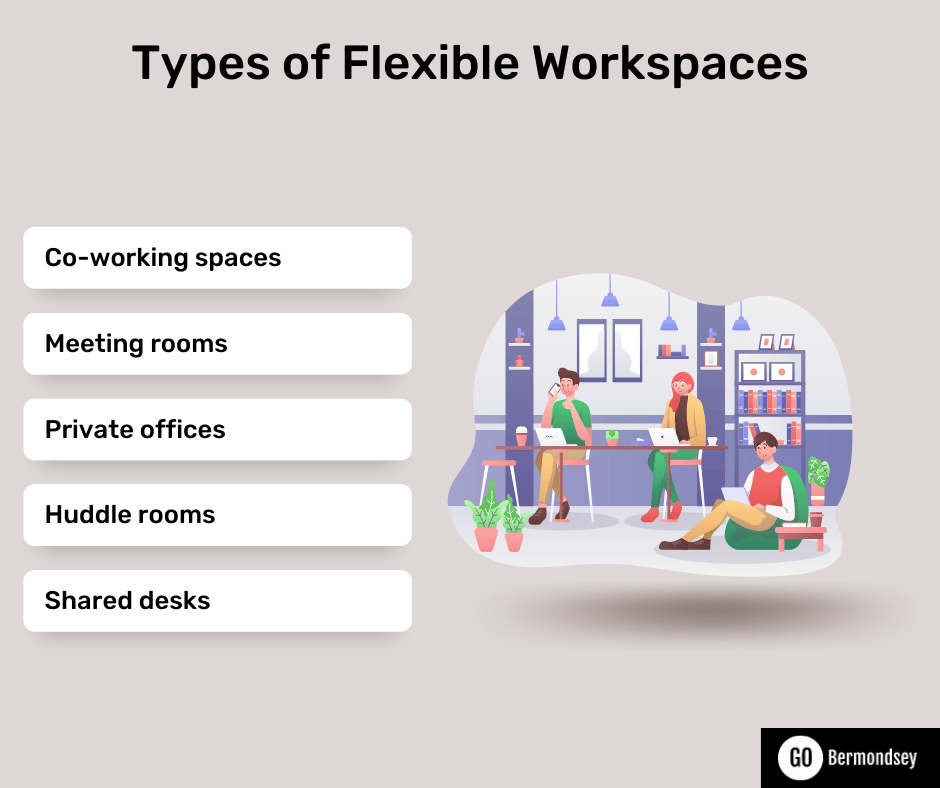
- Coworking Spaces: Coworking spaces are open-plan environments where individuals from various companies work together in a shared space. They are designed to promote collaboration, networking, and a sense of community.
- Virtual Offices: Virtual offices provide businesses with a professional business address and communication services, such as call answering and mail handling, without a physical office space. They are essentially a virtual presence for businesses.
- Private Offices: Private offices within flexible workspaces offer exclusive, fully furnished office spaces that provide privacy and security. These spaces can accommodate small to large teams.
- Meeting Rooms: Meeting rooms within flexible workspaces are professional spaces equipped for meetings, presentations, and client discussions. They typically include essential amenities like audio-visual equipment.
- Huddle Rooms: Huddle rooms are small, informal spaces designed for quick and collaborative discussions. They offer a relaxed setting for brainstorming, quick team meetings, or impromptu conversations.
- Shared Desks: Shared desks are flexible workspaces where multiple individuals or teams can use common workstations or desks. It’s a cost-effective option for those who don’t need a customisable office space.
What is the Difference Between a Flexible Workspace and a Traditional Office?
The table below offers a detailed comparison between flexible workspaces and traditional offices.
| Aspect |
Flexible Workspaces |
Traditional Offices |
| Lease Terms |
Short-term leases with flexibility |
Long-term leases with fixed commitments |
| Cost Structure |
Pay-as-you-go, shared costs, reduced upfront expenses |
Higher initial costs and fixed overheads |
| Office Space Customization |
Adaptable layouts, scalability |
Fixed layouts, less adaptable |
| Amenities and Services |
Included services like coffee lounge |
Self-managed services, additional costs |
| Networking and Collaboration |
Opportunities for networking and collaboration |
Limited networking, isolated environments |
| Administrative Support |
Often provided, streamlining operations |
Self-managed administrative tasks |
| Location |
Diverse locations, often in prime areas |
Fixed location, may require commuting |
| Property Maintenance and Management |
Handled by workspace provider |
Responsibility of the tenant |
| Corporate Image |
Professional image enhancement |
Traditional corporate image |
| Workspace Size Flexibility |
Easily scalable to accommodate growth |
Limited flexibility for changing needs |
| Workplace Culture |
Community-driven, dynamic |
Corporate and structured |
What are the Factors to Consider when Choosing a Flexible Workspace?
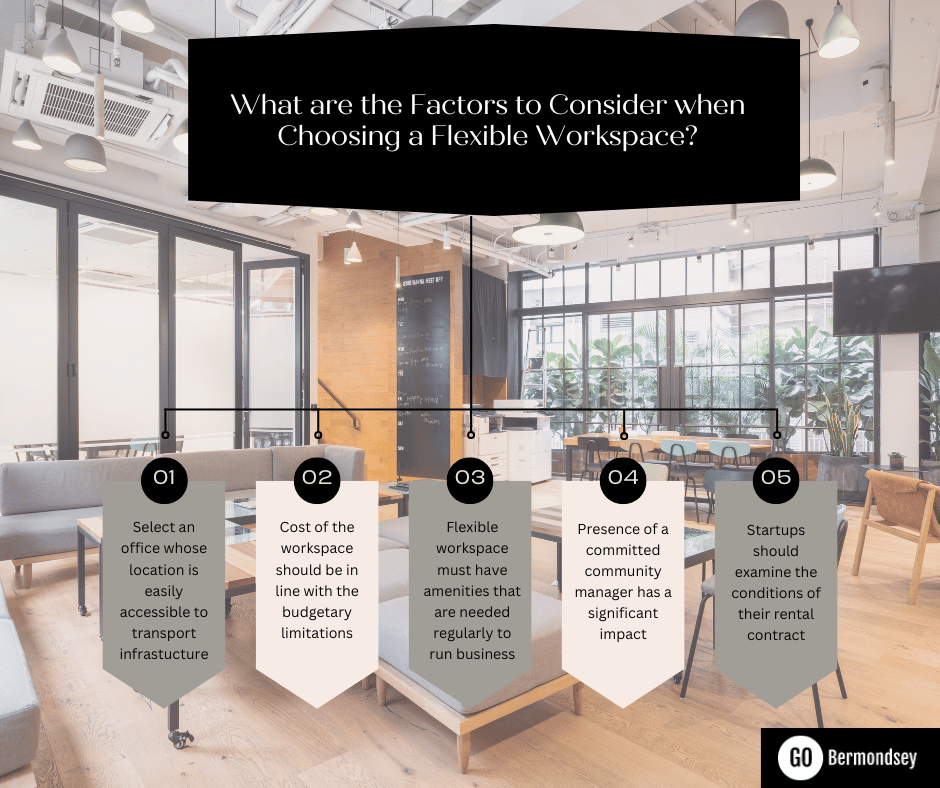
Here are the most important aspects to consider for entrepreneurs when choosing the most flexible workspace.
- Location: Selecting the best site is essential for startups when it comes to choosing a flexible office space. Accessibility plays an important role and is a factor in being close to major transportation infrastructure, main highways and public transportation making it easy for both clients and employees. In addition, being in a thriving business district will help improve the company’s professional image, thereby making it more easily accessible to prospective customers.
- Cost: The cost is a crucial element that startups should take into account when looking at different workspace alternatives. The cost of the workspace should be in line with the budgetary limitations of the startup that include both short-term and long-term costs. It is crucial to determine the cost of the workspace while making sure it’s worth the money invested.
- Accessible Amenities: Startups must thoroughly look into the features offered by the flex-workspace. Essential services like the high-speed Internet, connectivity to phones, video conferencing and well-equipped meeting rooms are vital to ensure smooth operations. Beyond the basics, facilities like comfy lounges, fully-equipped kitchens make for a more relaxing and relaxed work setting, which increases the satisfaction of employees.
- Community: The presence of a committed community manager has a significant impact on the user experience in the flexible work environment. Community managers play an integral part in arranging activities and events that encourage networking, and build a vibrant and inclusive community.
- Budget: The careful examination of the management of your budget is vital. Startups should examine the conditions of their rental contract including payment schedules, as well as any extra costs. Assuring that the budget will comfortably cover all costs is vital to avoid the financial burden.
Why Choose Garden Office Bermondsey as your flexible workspace?
Garden Office Bermondsey, located at 37 Tanner St, near London Bridge, offers an exemplary blend of flexibility, facilities, and community, making it an ideal choice for startups. Here’s why you should consider Garden Office Bermondsey for your flexible workspace needs:
- Convenient Location: Situated near major transportation hubs like London Bridge Station, Garden Office Bermondsey ensures easy accessibility for all attendees.
- Versatile Workspace Options: Whether you need collaborative meeting rooms, or private offices, our range of co-working facilities ensures you find the perfect fit. With office sizes ranging from 500ft² to 1350ft², you can scale your workspace as your business grows.
- Comprehensive Amenities: At Garden Office Bermondsey, we handle all your office space requirements and provide you with the necessary amenities. From high-speed internet to kitchen facilities, parking, printing services, and attentive service personnel, all these amenities are included in your rent.
For a flexible workspace that combines convenience, functionality, and security, Garden Office Bermondsey is the ultimate choice. Book your visit for more information on our offerings.
